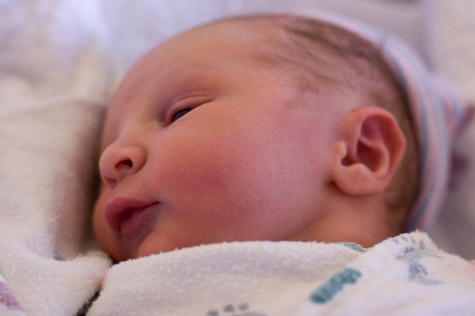 Diapers are one of those things in life that is absolutely essential. Disposable diapers have obvious benefits. All you do is take the old one off, dump it in the trash and slide the new one on and stick in place. And, let’s be honest here, who really wants to do anything more than that when it comes to changing diapers? Disposable diapers are easy, fast, convenient and save us a lot of work.
Diapers are one of those things in life that is absolutely essential. Disposable diapers have obvious benefits. All you do is take the old one off, dump it in the trash and slide the new one on and stick in place. And, let’s be honest here, who really wants to do anything more than that when it comes to changing diapers? Disposable diapers are easy, fast, convenient and save us a lot of work.
Nevertheless, as with most convenient things in our lives, disposable diapers take their toll on the environment. As we all know, disposable diapers are made from earth enemy number one: plastic. The only thing to do with disposable diapers is, well, dispose of them. They cannot be recycled, so these plastic puppies go straight to a landfill. As we all know, plastic is made to last, and disposable diapers take 500 years to decompose. The United States sells between 18 and 23 billion diapers a year, and each one of them goes straight to a landfill, staying there for the next half millennium.
On top of all that, disposable diapers are anything but cheap. Disposable diapers can rack parents up anywhere for $50-$80 a month. Thats $600-$960 a year on diapers alone. Most toddlers do not get potty trained until they are between one and a half to two years old. That’s a lot of diapers going into landfills, and a lot of money for parents.
So what else is there besides disposable diapers? Below are some alternatives to plastic diapers:
– Cloth Diapers: Cloth diapers these days are a lot more than they used to be. Made with multiple absorbent layers, and velcro fasteners, these modern cloth diapers are more than a match for disposable diapers. There are two options for cloth diapers: launder them yourself which will save you $25-$30 a month, or use a cloth diaper service, which will cost you about the same as disposable diapers. This site can help you find the right cloth diapers for your baby.
– Biodegradable Diapers: These diapers are entirely plastic-free, designed to be reusable with a compost-able or flush-able filler. Proponents of these diapers claim they can be flushed, composted at home and even thrown away with minimal environmental damage. However, these diapers are often made with wood pulp and cotton, both of which come with their own environmental costs. This is one of many sites to learn about biodegradable diapers.
– Infant Potty Training: Ever wonder what they do in countries where they don’t use diapers? My brother just got back from a trip to China, and he never saw a baby that had a diaper. In countries like these, they potty-train their children from infancy, avoiding the need for diapers altogether. This practice is not all-too common in modern America, but for those who care to learn, this is a viable alternative to diapers, and one that has the smallest impact on your pocketbook and the environment. You can look here to learn more about Infant Potty Training.

